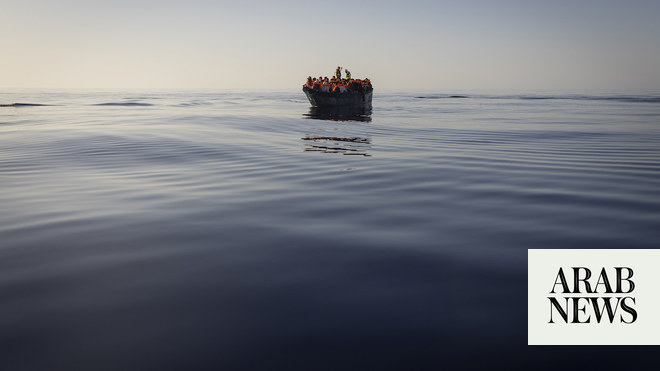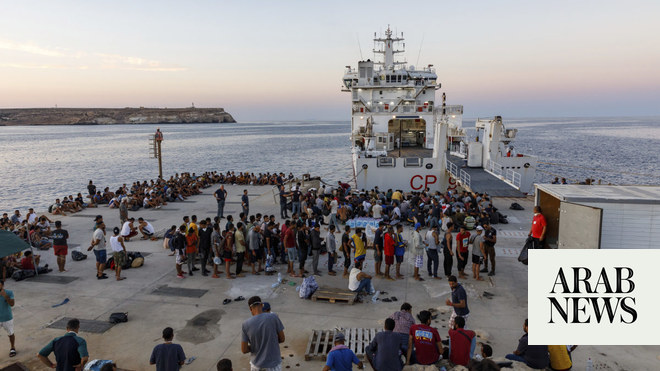
Operations are a ‘response to higher people flow, not a cause’
Poverty, conflict, persecution play key role in migration surge from North Africa
LONDON: Migrant rescue operations in the Mediterranean Sea do not incentivize others to cross into Europe on dangerous journeys, a new study has found.
Researchers tracked the rate of crossings from North Africa to Italy between 2011 and 2020, finding that the introduction of rescue policies did not affect the number of journeys made, The Times reported on Friday.
The findings of the study in the Scientific Reports journal contradict claims that rescue operations encourage migrants to make the Mediterranean crossing in dangerous conditions, in a bid to be taken on board European vessels and transported to the continent.
Mare Nostrum, an Italian air and sea rescue mission in 2013 and 2014, had no effect on crossing rates, despite the operation leading to the rescue of at least 150,000 migrants, researchers found.
The study said rescue missions are “a response to the higher flow (of migrants), not a cause,” adding that rising crossing numbers are “far better explained by worsening economic conditions, environmental degradation, conflicts or violence, and political persecution.”
Since 2014, UN figures show that at least 20,000 deaths and disappearances have been recorded in the central Mediterranean area.
The Scientific Reports study measured recorded crossing attempts, as well as data on boats sent back to Tunisia and Libya, and documented death statistics.
Factors influencing the growth of migrant flow — including currency exchange and unemployment rates, and conflict levels — were also considered.
Commodity prices and natural disasters, another metric used by researchers, appeared to play a role in crossing rates from the Middle East and North Africa to Europe.
Attempts by Libya’s coast guard to intercept and return boats after 2017 also coincided with a drop in crossing attempts, the study said.












